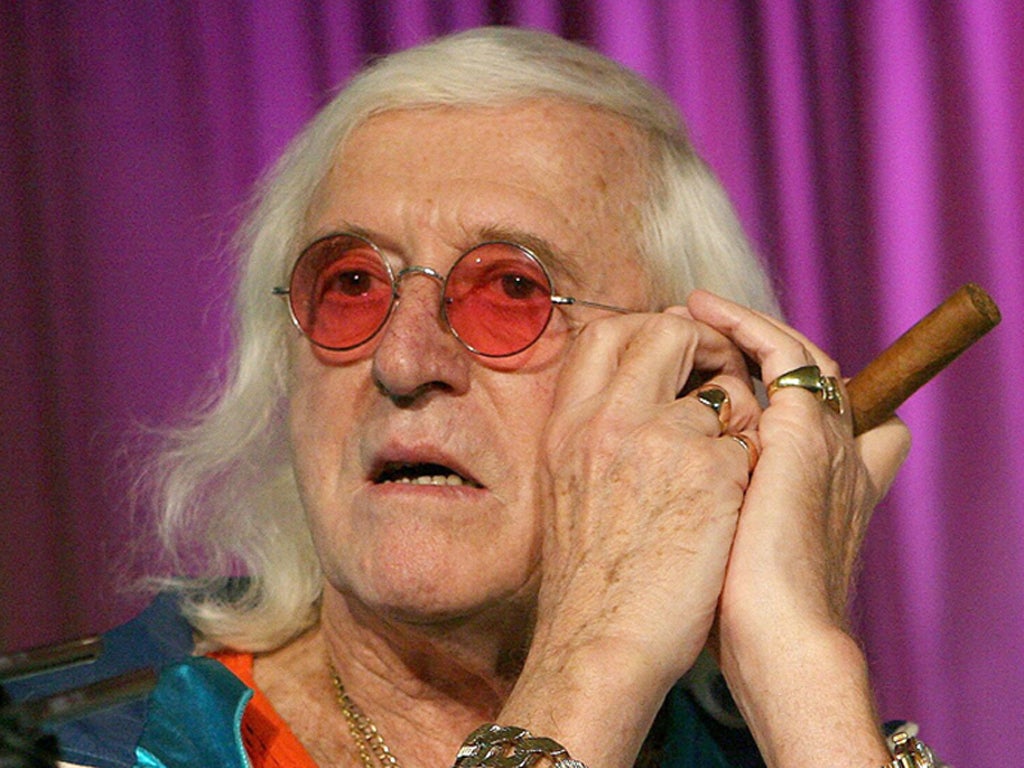Director of Public Prosecutions confirms urgent investigation into failure to prosecute Jimmy Savile over child abuse allegations
Mr Starmer will examine why the Crown Prosecution Service failed to act on evidence about Savile’s activities passed to it in 2009 by Surrey Police

The Director of Public Prosecutions has launched an urgent investigation into the Crown Prosecution Service’s failure to prosecute Jimmy Savile after a number of women had come forward with allegations that they had been sexually assaulted by the star.
Keir Starmer will examine why the CPS failed to act on evidence about Savile’s activities, passed to it in 2009 by Surrey Police.
The CPS investigated allegations that Savile assaulted girls at the Duncroft children’s home and Stoke Mandeville hospital but concluded at the time that there was not enough evidence to prosecute the television personality, who died two years later.
Starmer stood by the decision not to prosecute. But he said: “Out of an abundance of caution I have asked for the papers in the four cases to be provided to my Principal Legal Advisor, Alison Levitt QC, forthwith so that she can consider the decisions made and advise me accordingly.”
Starmer said he had discussed with the Attorney General whether the CPS should now “adopt a policy of referring cases to other relevant agencies, such as social services, where an allegation is made but cannot be proceeded with for evidential reasons.”
Following a review of the cases by Roger Coe-Salazar, Starmer said he had been assured that “the decisions taken at the time were the right decisions based on the information and evidence then available.”
Starmer said that it was possible to prosecute cases where the victim does not support a prosecution.
But there were difficulties in proceeding with a case where “the victim does not support a police investigation, where there is no forensic evidence and only very limited, or even in some instances no, witness evidence, particularly in relation to allegations which date back a number of years.”
Shadow attorney general Emily Thornberry welcomed the DPP’s decision, but said any review should be conducted by independent inspectors, rather than the CPS itself.
“It is deeply disappointing that the CPS was presented with evidence of a clear pattern of sexual assaults by Savile and decided not to act,” said Ms Thornberry.
Meanwhile the NSPCC yesterday said the number of people who have contacted the organisation claiming to be victims of Savile has reached 161.
Solicitors for the victims said that evidence was emerging of a “very organised” paedophile ring, whose members included Savile and his associates, operating at the BBC 40 years ago.
With nine serving BBC employees currently under investigation for “serious allegations” of sexual harassment or assault, and the corporation’s handling of the crisis coming under attack from within and without, Director-General George Entwistle and Lord Patten, Chair of the BBC Trust, were told that they may both have to resign.
Conservative MP Sir Roger Gale, a former producer of current affairs programmes for the BBC, said of Patten: “If independence means being beyond challenge, then he does not appreciate the very real concern, not only or even within Parliament, but more particularly the public concern.
“It is as if your favourite and respectable aunt has been revealed to be on the game and if Lord Patten is not able to grasp that, then I fear that not only the Director-General but also the Chairman of the BBC Trust are going to have to fall on their swords.”
John Whittingdale MP, chairman of the Culture, Media and Sport committee that questioned Entwistle, said he was "astonished" the director general had failed to ask for details about Newsnight's investigation into Savile.
He told BBC Radio 4’s The World At One: “I cannot see how, if you are told an investigation is being carried out simply saying 'What aspect are you looking into?', how that could possibly be seen as interfering in an editorial decision.”
BBC presenters weighed in, attacking management’s treatment of Peter Rippon, the Newsnight editor, who was publicly criticised by Entwistle for dropping the Savile investigation, and has stood aside from his post on full pay.
Victoria Derbyshire, the BBC Radio presenter, tweeted: “If BBC journos/Eds make a poor editorial call (& most of us hve at some point), will they be treated by mgemnt like Peter Rippon has been?” She then re-tweeted comments in response about it being a “stitch-up” if Rippon became the only “casualty”.
Raymond Snoddy, the respected media commentator, said Entwistle’s performance in front of a Commons select committee on Tuesday was so poor, that he would have to quit. “He looked and sounded like a vicar on a sabbatical who has somehow strayed into the top job in British broadcasting by accident,” wrote Snoddy.
Entwistle “had an absolute responsibility to know about things that could totally undermine the BBC and trust in its journalism,” said Snoddy, who predicted that Caroline Thomson, the former BBC executive overlooked for the top job, could replace Entwistle, whose authority has begun to drain away.
